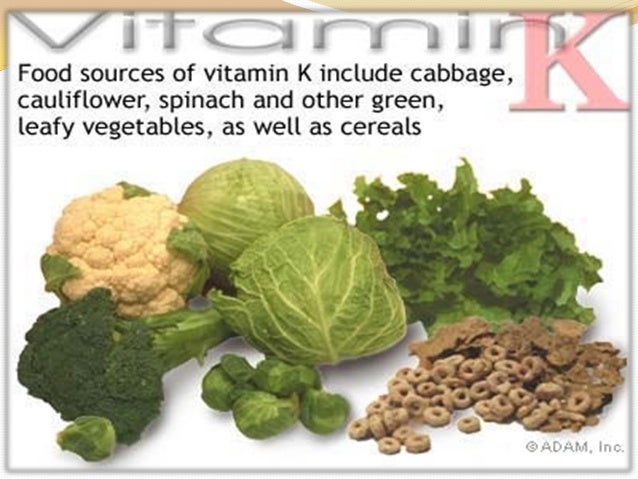E Vitamin
The e vitamin is extremely important for a variety of functions in the body. A healthy heart needs plenty of the e vitamin as it has been shown to actually prevent heart disease. The e vitamin can also help contain any existing heart disease and stop it from getting worse.
E vitamin is also vital in protecting the cell membranes from the harmful free radicals that are present in the body. Without e vitamin, amongst others, the cell membranes would be damaged and this could lead to serious health problems, including cancer. The reason that the e vitamin is so effective against free radicals is that it is fat soluble so it can be absorbed into the cell membranes. The e vitamin is therefore essential for the immune system.
The recommended daily amount of the e vitamin that a person requires depends on their body weight. This is connected to the fact that the more fat a diet contains then the more of the e vitamin that is needed. However, the only foods that really contain any reasonable amount of the e vitamin are vegetable oils, seeds, wheat germ, and nuts. It is for this reason that most people should take some form of e vitamin supplement.
A deficiency of the e vitamin does not affect a person immediately. In fact, it can take months for the effects of insufficient e vitamin to be detected. After years of e vitamin deficiency there may e some detectable damage to the nerves of the spinal cord or retina of the eye but this is very rare. Most people obtain enough e vitamin from a normal diet but it is essential that the food that a person eats contains a little fat to help with the absorption of the e vitamin.
There are a few medical conditions that may lead to a deficiency of the e vitamin and may require the person to take e vitamin supplements. Cystic fibrosis causes a person to be unable to digest fats well which leads to less of the e vitamin being absorbed. Crohn’s disease causes to lower absorption rates of the e vitamin and a supplement may be necessary. Some forms of liver disease can also lead to problems absorbing the e vitamin, especially through the intestine. Of course, as fat is required to help absorb sufficient amounts of the e vitamin, anyone on an extremely low-fat diet will need to discuss their options for increasing the amount of e vitamin that their body needs.
K Vitamin
The K vitamin is essential for the blood to clot to repair injuries. Whenever a person has a bleeding wound, it is the K vitamin that is present in the blood that stops the bleeding and enables most minor cuts to heal quickly.
There are three different forms of the K vitamin. The first variant of the K vitamin is vitamin K1, also known as phylloquinone. This is the form of the K vitamin that is found in types of plant foods. Vitamin K found in plant foods. The second form of the K vitamin is the vitamin K2, or menaquinone. This type of the K vitamin is formed by friendly bacteria in the intestines. Thirdly, there is vitamin K3 which is also known as menadione and is actually an artificial form of the K vitamin. All three of these types of K vitamin end up in the liver where it is used to create the blood clotting substances.
The best natural sources of the K vitamin are green leafy vegetables, such as spinach. However, because the friendly bacteria in the intestine makes one of the forms of the K vitamin it is extremely rare for a person to have a deficiency of the K vitamin and so K vitamin supplements are not needed by the majority of people.
Apart from the main function of helping blood to clot, the K vitamin, specifically the Vitamin K1, has an important part to play in the bone building process. This K vitamin is required to retain the calcium in the bones and redistribute it to where it is needed.
Although a K vitamin deficiency is relatively rare there are certain groups of people who may suffer from it. Newborn babies may not have enough of the K vitamin as they have insufficient bacteria in their intestines to produce it. The majority of newborn babies in developed countries are therefore given a K vitamin injection to tide them over until the natural process takes over. That is the only time that a K vitamin supplement will be taken by most people throughout their lives. However, an extended course of antibiotics may lead to a K vitamin deficiency due to the fact that the antibiotics kill the intestinal bacteria as well as the ones that they are being taken to cure. Again, a K vitamin supplement may be given if the course of antibiotics has to continue for a long period of time.
The e vitamin is extremely important for a variety of functions in the body. A healthy heart needs plenty of the e vitamin as it has been shown to actually prevent heart disease. The e vitamin can also help contain any existing heart disease and stop it from getting worse.
E vitamin is also vital in protecting the cell membranes from the harmful free radicals that are present in the body. Without e vitamin, amongst others, the cell membranes would be damaged and this could lead to serious health problems, including cancer. The reason that the e vitamin is so effective against free radicals is that it is fat soluble so it can be absorbed into the cell membranes. The e vitamin is therefore essential for the immune system.
The recommended daily amount of the e vitamin that a person requires depends on their body weight. This is connected to the fact that the more fat a diet contains then the more of the e vitamin that is needed. However, the only foods that really contain any reasonable amount of the e vitamin are vegetable oils, seeds, wheat germ, and nuts. It is for this reason that most people should take some form of e vitamin supplement.
A deficiency of the e vitamin does not affect a person immediately. In fact, it can take months for the effects of insufficient e vitamin to be detected. After years of e vitamin deficiency there may e some detectable damage to the nerves of the spinal cord or retina of the eye but this is very rare. Most people obtain enough e vitamin from a normal diet but it is essential that the food that a person eats contains a little fat to help with the absorption of the e vitamin.
There are a few medical conditions that may lead to a deficiency of the e vitamin and may require the person to take e vitamin supplements. Cystic fibrosis causes a person to be unable to digest fats well which leads to less of the e vitamin being absorbed. Crohn’s disease causes to lower absorption rates of the e vitamin and a supplement may be necessary. Some forms of liver disease can also lead to problems absorbing the e vitamin, especially through the intestine. Of course, as fat is required to help absorb sufficient amounts of the e vitamin, anyone on an extremely low-fat diet will need to discuss their options for increasing the amount of e vitamin that their body needs.
K Vitamin
The K vitamin is essential for the blood to clot to repair injuries. Whenever a person has a bleeding wound, it is the K vitamin that is present in the blood that stops the bleeding and enables most minor cuts to heal quickly.
There are three different forms of the K vitamin. The first variant of the K vitamin is vitamin K1, also known as phylloquinone. This is the form of the K vitamin that is found in types of plant foods. Vitamin K found in plant foods. The second form of the K vitamin is the vitamin K2, or menaquinone. This type of the K vitamin is formed by friendly bacteria in the intestines. Thirdly, there is vitamin K3 which is also known as menadione and is actually an artificial form of the K vitamin. All three of these types of K vitamin end up in the liver where it is used to create the blood clotting substances.
The best natural sources of the K vitamin are green leafy vegetables, such as spinach. However, because the friendly bacteria in the intestine makes one of the forms of the K vitamin it is extremely rare for a person to have a deficiency of the K vitamin and so K vitamin supplements are not needed by the majority of people.
Apart from the main function of helping blood to clot, the K vitamin, specifically the Vitamin K1, has an important part to play in the bone building process. This K vitamin is required to retain the calcium in the bones and redistribute it to where it is needed.
Although a K vitamin deficiency is relatively rare there are certain groups of people who may suffer from it. Newborn babies may not have enough of the K vitamin as they have insufficient bacteria in their intestines to produce it. The majority of newborn babies in developed countries are therefore given a K vitamin injection to tide them over until the natural process takes over. That is the only time that a K vitamin supplement will be taken by most people throughout their lives. However, an extended course of antibiotics may lead to a K vitamin deficiency due to the fact that the antibiotics kill the intestinal bacteria as well as the ones that they are being taken to cure. Again, a K vitamin supplement may be given if the course of antibiotics has to continue for a long period of time.




